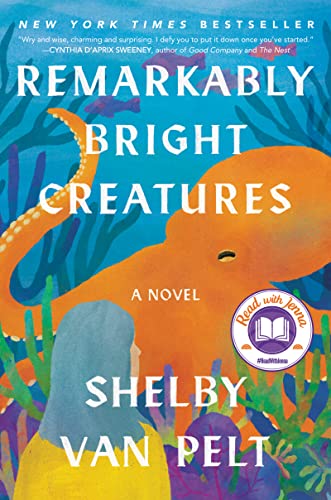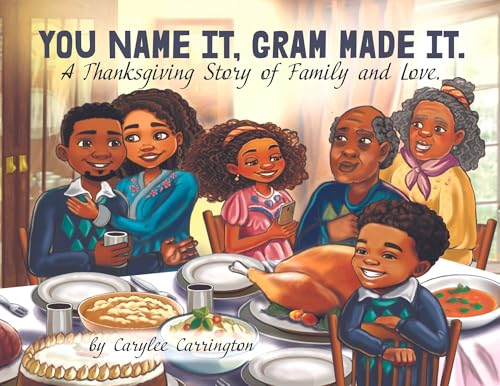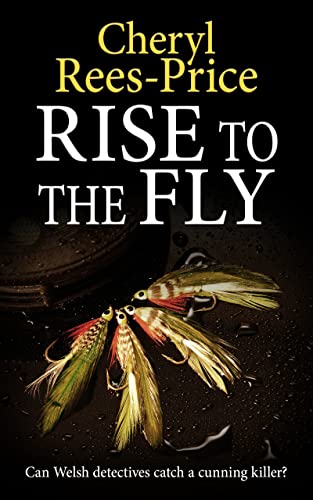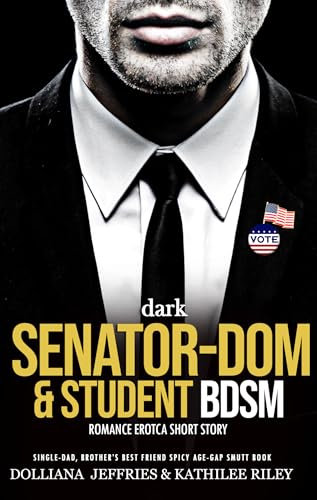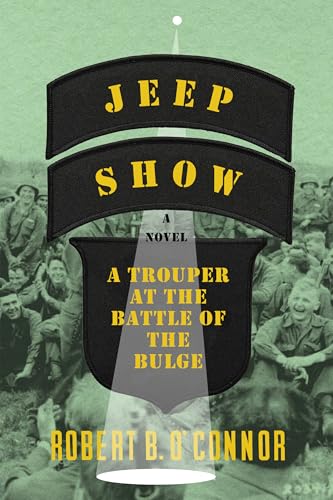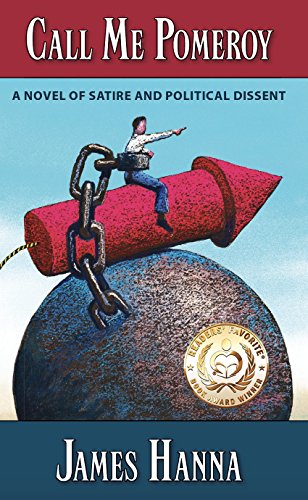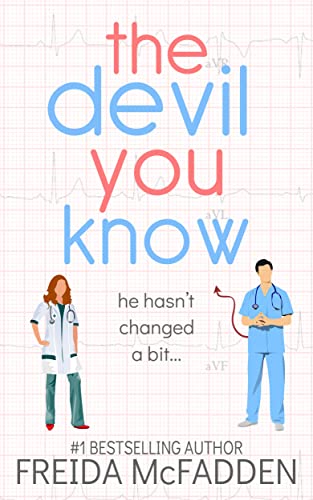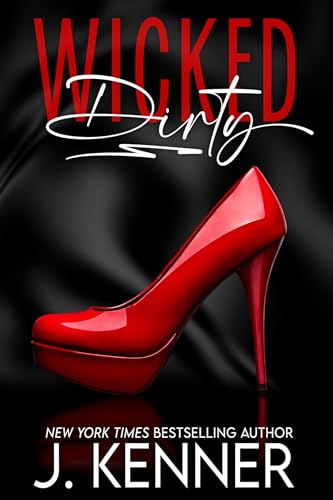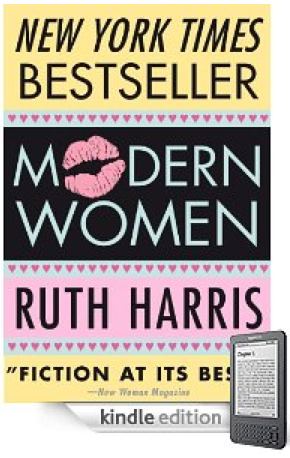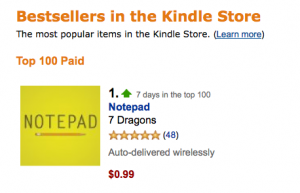 International bestselling sensation Ruth Harris has enchanted many millions of readers in 25 countries with her sharp, stylish and steamy page turners in print. Today she offers up a generous 15,000-word Free Kindle Nation Short from Husbands and Lovers — on sale for just 99 cents for the month of July! — a novel of passion, marital conflict, and intrigue.
International bestselling sensation Ruth Harris has enchanted many millions of readers in 25 countries with her sharp, stylish and steamy page turners in print. Today she offers up a generous 15,000-word Free Kindle Nation Short from Husbands and Lovers — on sale for just 99 cents for the month of July! — a novel of passion, marital conflict, and intrigue.
Text-to-Speech and Lending: Enabled
THE NEW YORK TIMES BESTSELLER!
A neglected wife. A jealous husband. A passionate lover. A gun in a Tiffany bag.
Carlys Webber’s lonely and insecure beginnings are in the past but her future is threatened when her husband turns into an angry stranger and she is propelled into the arms of another man. Their explosive passions collide in a life and death confrontation — with consequences that can shatter their almost-perfect lives.
Spanning the years stretching from the sullen Seventies to the exuberant Eighties, HUSBANDS AND LOVERS was a New York Times bestseller, a selection of the Literary Guild and Book-of-the Month Club and sold over a million copies in 19 languages.
The Chicago Sun-Times called it “Sharply observed and stylishly written.”
Cosmopolitan magazine said “steamy and fast-paced.”
The Fort Worth Star-Telegram commented, “A brilliant book…tough, trenchant, chic and ultra-sophisticated.”
Four More For Kindle By Ruth Harris
 Free Kindle Nation Shorts – July 13, 2011
Free Kindle Nation Shorts – July 13, 2011
Copyright © 2011 by Ruth Harris and published here with her permission
Carlys Webber Arnold was a woman who never took anything for granted. She was a woman who had turned herself from a loser into a winner, from ordinary into extraordinary, a woman who had lived through the best of times and worst of times and learned from every minute. At twenty, Carlys had been mousy, invisible, the classic grind. By thirty, she’d even given up on Mr. Okay, never mind Mr. Right. Because she’d had no other choice, she had devoted herself to her career. At thirty-seven, though, she had it all – a spectacular career, a handsome and successful husband, plenty of money, and even a style of her own. Her green eyes were softly shaded and penciled; her flawless skin, always her best feature, glowed; her light brown, naturally curly hair was cut into a flattering, shiny cloud and her body, toned by constant exercise and fanatic self-control at mealtimes, was slim and strong. She dressed for success, but under her expensive, carefully tailored suits, she wore fragile and lacy lingerie. The woman under the executive. Very Carlys. Very attractive. Very eighties.
At a quarter to eight on a Tuesday evening in mid-November, Carlys stepped out of a taxi in front of her expensive Upper East Side co-op. She still remembered her depressing one-room walk-up, and because she did, she appreciated the elegant building in which she now lived, with its handsome limestone fagade and solicitous doormen who greeted her whenever she entered or left. She said good evening to the doorman, got into the elevator, and chatted with the elevator man as they ascended to the tenth floor. She stepped out of the elevator and crossed the few steps of thickly carpeted hallway to her own elegantly lacquered front door and, inserting the key into the lock, opened it. She was shocked to see her husband.
“Kirk! What are you doing here!” she exclaimed, her heart stopping. “I thought you were in Los Angeles.”
“I was in Los Angeles,” he said and smiled and put his arms out to her. He was tall, rich, and handsome, a brilliant businessman with a hot hand in corporate affairs, an American aristocrat with a him star’s charisma, a younger Prince Philip, a taller Robert Redford. He was blond and tawny and the scar that intersected his left eyebrow only added a mysterious hint of an intriguing past. “I kept thinking about you and I decided to give myself a birthday present and spend it with you!”
“How romantic!” she said, thrilled, glorying in his embrace, his attention. She had been his wife for seven years and sometimes, when she saw him across a room, she still couldn’t really believe that she was actually married to him. The Wallflower and the White Knight. “When did you get back?”
“This afternoon,” he said as he handed her a small shopping bag from Tiffany. Even though it was his birthday, his forty-eighth, he was the one who gave the present. Early in their marriage, he had forbidden her to mark his birthday. Kirk’s hatred of birthdays seemed a peculiar quirk to Carlys, but she had finally accepted it as one of the mysteries in the man she had married.
He watched as she opened the present. Her green eyes sparkled with pleasure and a healthy acquisitiveness as she took the three wide ivory bangles out of their box and immediately tried them on. Carlys’s sheer animal pleasure in things always delighted him; his first wife had never cared. “Do you like them?”
“You know I do!” she said, holding out her arm, turning it this way and that, the better to appreciate and admire the handsome Peretti bangles. It was just like Kirk to give her a present, she thought. He had trouble putting his feelings into words; he gave gifts instead. Gifts that said I love you. I’m sorry. You mean everything to me. Gifts whose meanings he expected her to interpret. “I love them!”
She smiled again and, putting her arms around him, kissed him.
“That’s no kiss!” he chided. Gently at first, and then deeply, he probed her mouth, excited by her familiar, slightly spicy taste and the feeling of the familiar sensuous curves of her body against his.
The next morning Carlys made him breakfast and kissed him goodbye at the door.
“I love the bracelets,” she said, already wearing them, as she held the door for him as he picked up his briefcase to return to the coast and the Silicon Valley negotiations. “Thank you again.”
Carlys kissed him, smiled, and let him go. She was a wife used to a husband who traveled constantly on business; a sophisticated woman living a sophisticated life in a sophisticated city; a woman who had it all: a successful career, a loving husband, a passionate lover.
The apartment on East Sixty-second Street, once photographed by The New York Times, was handsome and inviting. The man who lived there was the architect who had designed it. He was an amber-eyed Greek God, olive-skinned and dark-haired. George Kouras was sensitive and passionate, a lover, he said, not a destroyer. A giver, he had told Carlys right from the beginning, and not a taker.
“I couldn’t wait for you to get here,” he said tenderly, later that day. He helped her off with her jacket, his hands caressing the back of her neck. She shivered under his touch.
“When is the magic going to stop?” she wondered out loud.
“Never,” he said, silencing her with his mouth, excited just to be with her again. He needed her just the way he needed Jade. He needed them both and he wasn’t going to let either of them go.
His lips on hers were gentle at first and then more insistent. George was an artist with women, a genius at love and its complexities. He loved love, lived for love and. never thought that loving one woman was a reason not to love another.
Gradually, Carlys returned his kiss, still thrilled by the novelty of his taste, by the mysteries of his mouth and hands and body. As he led her into his bedroom she told herself that it was only an affair, and that she could stop anytime she wanted. Besides, Kirk was such a workaholic, so caught up in business, that he’d never find out.
Jade Mullen was an original. She always said that the best thing that ever happened to her was not being born pretty. She had hair the color of wet sand, bronze eyes with gold-flecks, and beautiful hands with almond-shaped nails. She had too much nose and too little chin, but the only thing anyone ever noticed was that she was always the best-looking woman in the room. When a candy-box pretty girl got picked to be Snow White in the fourth-grade Christmas pageant and Jade got to be a dwarf in a lumpy brown costume, she swore on her grungy Grumpy’s hat that she would never again be treated as second best just because she wasn’t pretty – and she never was.
Jade never did anything the way other people did. She didn’t talk like anyone else. She didn’t dress like anyone else. She didn’t look like anyone else. Being unconventional had always been the secret to her enormous success – with a long line of men who found her irresistible and with a dazzling career in fashion that made her the muse of one of Seventh Avenue’s most influential designers. The one and only time Jade had ever done anything conventional, she had failed.
Like just about everyone else, Jade had gotten married and, like half the people who get married, had gotten divorced. Being single suited her; to Jade being single didn’t mean alone and it didn’t mean lonely. It meant love and independence and, for three years now, it had meant George Kouras.
On Seventy-third Street, just outside the gloomy offices of a well-known Park Avenue physician, Jade Mullen jammed her Borsalino down over her new Paris haircut, slung her suede bag bandolier-style over her quilted jacket, and began to look for a telephone. Park, of course, was too chic for phones. The one at Lexington and Seventy-third was broken. The one at Lex and Seventy-first was busy. She finally found one at Lex and Sixty-ninth that was both functional and available. She even had a dime but, naturally, the line was busy.
She gave up, and as she began to walk downtown, her mood turned somber and she wondered how George would react to the news. It was, she reflected as she turned the corner on Sixty-second Street, the kind of news better delivered face-to-face.
Meanwhile, in the small lobby of the brownstone building, Kirk Arnold searched the nameplates on the buzzer system. There it was, the third name from the top. GEORGE KOURAS, it read. Kirk pressed the buzzer and waited for the answer.
In his hand he carried the small Tiffany bag that hours before had contained the Elsa Peretti bracelets. Now it held a gun, a gun that had already taken two lives. Even as the buzzer sounded in reply, Kirk, knowing he was about to meet his wife’s lover face-to-face, his emotions in turmoil, did not know what he was going to do next.
“I always thought I was doomed to be on the outside looking in. To me, getting married was just like all the other good things in life. For other people. Not for me.” – CARLYS WEBBER ARNOLD
CARLYS WEBBER never understood what was supposed to be so wonderful about being single. When she first met Kirk Arnold in the spring of 1971, Carlys was twenty-six and unmarried, alone and lonely, vulnerable and unhappy, the survivor of go-nowhere jobs and go-nowhere men. The sixties had happened to everyone except her. The sexual revolution had freed everyone but her, and the women’s movement seemed to apply to everyone except her.
Her father was Jewish; her mother, Lutheran. As a girl, Carlys had attended synagogue on Saturday and church on Sunday, the recipient of a double dose of guilt. Her mother had had multiple sclerosis and Carlys had spent her childhood being good at school and being good at home where she was her mother’s nurse, her father’s housekeeper. It took multiple sclerosis seven years to kill Eleanor Webber, who died when Carlys was sixteen. Jacob Webber lived on, clinging to Carlys for dear life.
“I want my own apartment,” Carlys told him seven years later, her heart pounding guiltily, almost drowning out her words. “I found a nice studio on East Eighty-first Street.”
“Please don’t move out! You’re all I’ve got! I’ll be all alone!” Jacob Webber pleaded. He was a sad and gray man whose own life had ended with his wife’s death. In the year after her death, he retired not only from business but, so it seemed, from life, abandoning his interests in the stock market, his Tuesday night poker game, and his Sunday morning round of golf. He told Carlys that he had given up everything to devote himself to her. He refused to go out; he refused to meet new people; he refused to travel; he refused to go to temple; he refused to go to the movies. He even refused to have the apartment painted. He didn’t want to change anything from the way his wife had left it seven years before. “If you go, you’ll kill me.”
“I’m twenty-three,” Carlys said, aware of the hammering of her heart. Part of her was afraid that if she left, he would die, the way her mother had died. What gave her courage was the terror that more years of living with him would snuff out the little spark of life that still flickered in her. “I’m grown up. It’s time I was independent.”
“Please stay! Please don’t go! I’ll do anything you want!” he bargained, clutching her hand, physically trying to stop her from leaving.
“No, Daddy,” she said, sounding firmer than she felt. There were tears in her eyes. “I’m entitled to a life of my own.”
Even as she spoke Carlys had no idea of whether or not she was capable of creating a life of her own. The little confidence she had lurched and threatened to slip away.
On the same day that Carlys moved out of her father’s apartment Jacob Webber had a heart attack. His face turned ashen and he clutched his chest, his hands clawed with pain.
“Carlys! Don’t go!” Jacob gasped. “You can’t go!” He slumped onto the dining table in agony. “It’s my heart! I’m dying.”
Carlys called 911 and Dr. Barlow and for the next few days she raced back and forth between West End Avenue and East Eighty-first Street, between her new apartment and Roosevelt Hospital. Maybe he was right, she thought. Maybe she was killing him. Maybe she shouldn’t move out, shouldn’t get her own apartment. She was tormented by guilt. She was terrified that his prophecy was coming true. She had moved out and it was killing him!
She accused herself of being selfish. She told herself that her father’s heart attack was her fault, and that she was wrong to want to make a life of her own. She should stay with him, care for him, put him first, herself second. She should be a good daughter.
Her father’s doctor convinced her that she was wrong.
“Don’t let him blackmail you,” Dr. Barlow said. “You’re not the selfish one. He is. You’re a young woman, Carlys. You’re entitled to a life of your own.”
Without Gordon Barlow, Carlys would still have been living with her father but, ironically, the farther she got from West End Avenue in time and distance, the more closely she seemed bound to it. She was always the good girl, always the dutiful girl, always the girl who put others first and herself last. She was so accustomed to taking care of others that she often had difficulty taking care of herself. It was the reason she was so grateful for Norma Finkelstein’s friendship and good advice; it was the reason she was so vulnerable to Winn Rosier, who swore he loved her but was breaking her heart instead.
Only at school and work did Carlys ever seem to shine. The summer after her graduation from Hunter (she majored in liberal arts, which qualified her for exactly nothing), she took a basic secretarial course at Katharine Gibbs and found a job in the typing pool in the public relations department of the telephone company. Always a straight-A student in English, she was shocked at the semiliterate press releases she was handed to type. Very tentatively she began to “fix” them, and the copywriters soon began to hand Carlys “rough copy.”
“Fix it up, would you?” they’d say and Carlys would dutifully “fix it up.” Except that the “fixing” was more like rewriting, and soon enough, she was writing press releases herself. All the copywriters were men and they were being paid $225 a week; Carlys was getting $110.
“You’re getting screwed,” said Norma, the office agitator. She was one of the two assistants to the office manager and had access to the personnel files. It was Norma who had discovered that Carlys was getting paid less than half of what the men, whose work she’d been doing, were getting paid.
“You have to stand up for your rights,” said Norma.
The first time Carlys asked for a raise and a promotion she was nice about it and got nowhere. The second time she asked, she wasn’t, and she got what she wanted.
“I’d like a promotion and a raise,” she told Mr. Ryan, her supervisor, her heart thumping, her hands shaking, her voice shaky but determined. “I think I’ve earned it. I want to be a copywriter. I’ve been doing the work for almost two years and everybody in the office knows it.”
“I’ll see,” said Bob Ryan with a sigh. Bob Ryan was bald and moonfaced. He lived with his sister and mother in Queens and his only ambition was to sneak through life unnoticed. The thing Bob Ryan hated most was change, particularly change in his own department. “But you’ll have to be patient.”
Carlys agreed to be patient. She always agreed to what other people wanted. Two months later, though, nothing had been said or done. Carlys was still doing a copywriter’s work for a typist’s pay. Egged on by Norma, inspired by massive media coverage of employers’ unfairness to female employees and President Nixon’s proclamation of Women’s Rights Day, Carlys went back to Mr. Ryan and reminded him of their conversation. This time she had come prepared with a threat.
“If you don’t do anything,” she said angrily, “I’m going to your supervisor and if he doesn’t do anything, I’m going to his supervisor. And if he doesn’t do anything, I’m going to The New York Times. I’m doing a man’s work and getting a woman’s pay and I’m not going to put up with it anymore.”
“Be patient,” Bob began, sighing heavily.
“I’ve been patient,” said Carlys. “Now are you going to pay me what I’m worth or not?”
He sighed again. “I’ll talk to my supervisor,” he said and swiveled around in his chair, turning his back to her, a signal that the meeting was over. “Ballbreaker,” Carlys heard him mutter as she left his office. She wanted to kill him but she pretended not to hear. She wanted the raise and the promotion and told herself that it was better to shut up for the time being than tell him what he could do with himself and his precious balls.
Within two weeks Carlys was promoted to junior copywriter and got an office of her own, an office that consisted of semiopaque glass partitions that cut off air but not noise in the middle of the huge open-plan floor space. Every Monday she bought a single rosebud at the subway entrance and kept it in a bud vase on her desk.
Her small triumph at work seemed a good omen to Carlys.
“Maybe my love life will perk up,” she confided to Norma as 1970 turned into 1971. Her last date had been six months ago.
“Not as long as you work at the phone company,” Norma said.
Norma was right. As long as she stayed in her cubicle at the phone company, she’d stay invisible. A job, if it was the right job, could be socially invaluable. Even Carlys knew that. Since she had had no luck meeting men through blind dates or in singles’ bars, at resorts or in museums or art galleries or all the other places that seemed to work for everyone else, she decided that she might as well try to meet one through ajob. If she didn’t, at least she might have a chance to work her way up to a decent job and a decent salary. Carlys began to read the Times’ s want ads every weekday, and every Saturday afternoon she went to the all-night newsstand on First Avenue near her apartment. She waited for the back sections of the Times to come in and bought the Sunday Help Wanted section the minute it arrived. In February she found an ad, placed by the Arrow Personnel Agency, that seemed to speak directly to her: CHALLENGE. PRESTIGE. STATUS FOR THE RIGHT COPYWRITER WITH MAJOR LEAGUE PR BACKGROUND.
On Monday morning she got off the subway at Grand Central Station and walked over to the Forty-second Street and Fifth Avenue office of Arrow Personnel. It was a quarter to nine. The receptionist’s desk was empty, and Carlys timidly walked back into the office area.
“I’m here about the copywriting job,” Carlys said, clearing her throat. She stood outside the open door of the first occupied office, unsure whether or not to enter without an invitation, awed by the handsome executive inside.
“Which job?” he asked, looking up from his emery board and wondering where the hell the receptionist was. Winn Rosier was a few years older than Carlys and had fine olive skin and comely, even features, the most striking of which was a strong, cleft chin. Winn was well aware of his good looks and, at the dawning of the Me decade, was dedicated to making the best of himself. He shampooed his wavy blue-black hair daily and carefully blow-dried it. Every morning and evening he applied a trace of skin cream under his alert brown eyes to forestall premature wrinkling. He took care of his body, exercising regularly and controlling his weight by excluding refined sugar, red meat, and most starches from his diet. He took time and trouble with his clothes and jewelry, and this morning he wore a Giorgio Armani suit with a Ralph Lauren shirt and tie, a good imitation Cartier tank watch (as soon as he could afford to, he planned to buy the real one), and a gold ID bracelet, a gift from one of the many women who pursued him. A Prince tennis racket was propped up against the side of his desk next to a Louis Vuitton carryall that held his tennis clothes. A large jar of organic vitamin tablets stood on the window ledge. “We have a dozen copy jobs.”
“There’s one in a public relations department,” Carlys said, pulling the circled ad out of her purse and handing it to him. He glanced at it, and then at her. She had unstyled, curly, dishwater hair; heavy, unplucked eyebrows; no makeup except a tentative dot of pink lipstick; and an excuse-me-for-being-alive expression on her face. She wore a plaid polyester shirtdress with a white nylon collar and cuffs – a drip-dry number Winn could tell. A real pooch. He couldn’t wait to get rid of her.
“I’d like to apply for the job,” Carlys said, standing uncertainly on the other side of the desk, afraid of wasting his time. “I work at the phone company. I’m a copywriter,” she said and fumbled in her purse for the sample press releases she had brought along.
“Forget it,” he said. “SuperWrite is strictly blue chip. They’re not going to be interested in you.”
“But you haven’t even seen my work!” said Carlys, stunned by his offhanded dismissal. “You don’t know what I can do.”
“I don’t have to,” he said, picking up a metal letter opener and rotating its shiny blade to catch different angles of his reflection. As she spoke, he concentrated on his own image. “I’ve seen you. That’s enough.”
“That’s a terrible thing to say,” said Carlys, unable to stop the sudden tears that had come to her eyes.
“Don’t cry,” he said, annoyed. Her hang-dog expression and dumb clothes irritated him beyond belief. “I’m sorry if I hurt you, but I’ve found it’s better to tell the truth. SuperWrite is a fast-track company. You don’t look like a fast-track person.”
“I don’t?” she asked pathetically.
“And it’s not just looks,” he added, deciding he might as well let her have it. “You’re too self-effacing, too tentative, too apologetic.” The tears welled up in her eyes again and he immediately felt guilty. Winn wasn’t a bastard, just a minor-league sadist. “Tell me, do you have a job now?” he asked in a softer tone.
“Yes,” She said gratefully, thinking he wanted to hear about her experience. “At the phone company.”
“Let me give you a little advice,” he said, leaning forward. He took one more fast peek at himself and, liking what he saw, put the letter opener down. “The phone company is a good place to work. It’s secure. The benefits are great. You look like you fit in there.”
“You don’t have any job that I might qualify for?” Carlys persisted hopelessly.
He shrugged his shoulders. “Look, let me level with you. We’re a grade-A agency. We deal only with top-flight companies and top-flight personnel. You look like someone who ought to stick with the phone company until you can get that boyfriend of yours to marry you.” He winked at her conspiratorially and leaned back again, feeling he had done the right thing by her. “You get me?”
“No,” she said stubbornly, “I don’t ‘get’ you.”
“All right,” he said and sighed. “Have it your way. The fact is that I’m not going to send you on any interviews. You’ll screw up my track record.”
This time, the tears didn’t come to Carlys’s eyes.
“What’s your name?” she asked politely.
“Rosier,” he said. “Winn Rosier.”
“My name is Carlys Webber,” she said, with sudden, touching dignity. “I’ll be back.”
“God forbid,” he said under his breath, but loud enough for her to hear, as she left his office. He opened his top desk drawer, pulled out a breath spray, and used it before making his first telephone call of the day.
“It was a disaster,” she told Norma as soon as she got to the office. She felt crushed and humiliated. “A total disaster. He made me feel as if I’d just stepped off a bus from Nowhere.”
“What did he say?” Norma was working on a Twinkie and a Tab. She was fat, aggressive, generous, and, like Carlys, unmarried. She lived alone in a spacious apartment on Seventy-fourth Street between Riverside Drive and West End Avenue with two German shepherds named Bunny and Alice with whom she ran twice daily in Riverside Park. Norma had sought out Carlys’s friendship when, after a coffee-break conversation about Bob Ryan’s bully-coward syndrome, she had decided that Carlys was the only other person in the place with half a brain.
“That I didn’t look like a fast-track person,” Carlys said.
“Well, screw him!” said Norma, insulted on her friend’s behalf. “One of us has got to get out of this dump and since I have to lose twenty-five pounds before anyone gives me the time of day, I guess you’re elected. Fast-track person, huh?” Norma snorted contemptuously. “I’ll bet we can make you into a fast-track person in one week.”
“What is a fast-track person?” asked Carlys, her heart beating faster. Norma always gave her the courage to do things she wanted to do but was afraid of. Norma’s great talent was vicarious experience.
“What you’re going to be one week from today.” said Norma, polishing off the Twinkie and pegging the wrapper into the wastebasket, a perfect two points. Norma was always very definite when it came to other people.
Norma’s authorities were Vogue and Mademoiselle and Cosmopolitan.
“Hair is number one,” announced Norma. “Vogue says that layered hair is in.” She showed Carlys photographs of several different versions of the layered look. The biggest and most prominent photo was credited to a hairdresser named Jules.
“He’s famous,” Norma said, a connoisseur of beauty hints, gossip columns, and the National Enquirer. “I read that he cuts Candy Bergen’s hair.”
“Do you think you could copy it?” Carlys asked.
“I’ll try,” said Norma, who cut her own hair and didn’t do a bad job. She didn’t do a bad job on Carlys either, layering it around the face, cutting it a little shorter in the front than in the back the way Jules had. She was not brave enough, however, to cut the wispy bangs that fringed the model’s forehead in the photograph. Nevertheless, both were pleased with the result. Carlys was thrilled to have a haircut Vogue said was in. Norma said it showed more of her face.
The right clothes, Norma decreed, were the next step.
That Thursday night, when all the stores were open late, Carlys, under strict instructions from Norma, who was starting with Weight Watchers for the third time and therefore couldn’t accompany her, went to Macy’s, to the Young Career department. She fumbled through the racks, declining an offer of help from a trendy young salesgirl who sported an extreme shaggy haircut called The Monkey, a midi-skirt with a leopard-printed cumberbund belt, and high-heeled black leather boots. She waited until an older, more conservative-looking saleswoman wearing a dark suit and dark red sweater was free. Pink, plastic-rimmed eyeglasses swung from a black cord around her neck and rested on her ample bosom. She polished them assiduously and put them on, peering at Carlys as she spoke.
“I’d like to see something to wear to the office,” Carlys said nervously. “I’m interested in a fast-track job.”
“Then you’ll want a suit,” said the saleswoman authoritatively and showed Carlys three.
“I like the gray,” Carlys said, pointing toward it, thinking that gray was a good, safe color.
“You’ll do better with the navy,” said the saleswoman. “Navy is a power color.”
Carlys had never heard the phrase, but it was exactly the kind of expression Winn Rosier had used. When Carlys wrote a check for her purchase, the saleswoman told her that she’d made a good choice. “It’s a copy of a Calvin Klein,” she confided.
“Now you need the right makeup so your features don’t wash out under harsh, fluorescent office light,” Norma advised, quoting Mademoiselle.
On Saturday, while Norma took Bunny and Alice to the vet, Carlys went to Bloomingdale’s. At the Ultima counter a makeup artist was doing free makeovers. He was shorter and smaller-boned than Carlys, as slim as a leaf and fragile as a butterfly. He had velvety clear skin and exquisitely expressive large brown doe eyes that might or might not have been subtly outlined with gray pencil.
“Wonderful skin and wonderful green eyes,” he diagnosed, in a soft voice, as Carlys slid onto the makeup stool. He took her chin gently in his hand and examined her face from every angle. “Your skin is like velvet and your eyes are a photographer’s dream, huge and wide set. The trouble is they’re hidden under those brows. I’ll thin them out and shape them. Then, once you use the right shadow and liner, they’ll turn the color of emeralds.”
Swiftly and confidently he plucked the stray hairs from Carlys’s eyebrows, trimming and shaping them. Next, he applied foundation, shadow and liner, mascara and blusher, and lipstick, pausing now and then to step back and observe his work. When he was done, he held up a hand mirror.
“Do you like it?” he wanted to know, as anxious to please as Carlys always was.
“Oh, yes!” said Carlys, excited by the way she looked. With a few strokes of his brushes and fingers, he had created high cheekbones and interesting hollows beneath. Large, mysteriously shadowed eyes that had once been hidden under heavy brows were, magically, the color of emeralds. Her mouth was a subtle terra-cotta that made her lips soft and sensuous and her teeth seem blindingly white. “I look so pretty!”
Reluctantly she handed the mirror back and bought fifty dollars’ worth of the products and brushes he had used. She would have to borrow the money from Norma until next payday. When he gave her the bag containing her purchases he showed her how to work the magic he had worked. He told her where to place the shadows and the blusher, how to create the hollows under her cheekbones, how to put on mascara so it looked thick but didn’t cake, and how to apply the lipstick so that her mouth looked soft and pretty, natural-but-better-than-natural.
“You are pretty,” he said in his soft, earnest voice when she was ready to leave. “And you have gorgeous eyes. When you do your makeup, be sure you really bring them out.” Even though he was obviously gay, Carlys didn’t care. She treasured his compliment because she knew he was right. Deep down, she had always known she was pretty. It was just that people never really looked at her. No one else had ever noticed.
On the way home from Bloomingdale’s, Carlys bought the next day’s Help Wanted section.
The Arrow Agency had run the identical ad that had appeared the week before. Obviously, the SuperWrite job hadn’t been filled. At a quarter to nine on Monday morning she went back to the Arrow Agency. Just as she had the previous week, Carlys arrived before the receptionist and went straight back toward Winn Rosier’s office. Remembering what Norma had said about acting confidently, and what Winn had said about being too tentative, Carlys knocked firmly on the door and entered his office before he could say anything.
“Yes?” He’d been brushing his hair, but he put away the brush as soon as he realized an attractive woman was looking at him. The clothes definitely looked like Calvin Klein to him. “Can I help you?”
“I’m interested in the job at SuperWrite,” she said, approaching his desk and sitting in the chair in front of it.
“How did you know about that?” he asked, startled. She wasn’t supposed to know who his clients were. No one was. Personnel agencies keep their listings top secret.
“I did?” He looked at her blankly and flipped through his files quickly. “I sent over two candidates,” he said, getting out the card and reading his notes. “They were both men. They were both turned down.”
“You never sent me,” Carlys said quietly. “You advised me to stay at the phone company.”
“Oh,” he said, inspecting her carefully, now realizing who she was. “What did you do to yourself? Spend the week at Elizabeth Arden’s?”
Carlys ignored the remark. “Please make an appointment for me with SuperWrite,” she said politely. “You know, it was nice of me to come back to you. I could have gone straight to SuperWrite, and if I had gotten the job, you wouldn’t have gotten your commission.”
Winn Rosier looked at Carlys again, studying her, impressed by the transformation, impressed by her aggressiveness. He tended to like aggressive women, at least in the beginning.
“What did you say your name was?” he asked.
“Carlys Webber,” she replied.
“Well, Carlys, why the hell not?” he said, smiling at her in a way he knew women really went for.
SUPERWRITE’S OFFICES were in a sedate-looking building on Madison Avenue and Forty-eight Street. They were furnished the way Carlys imagined an English men’s club would be furnished: dark wood paneling, somber tapestries, heavy mahogany furniture, and faded oriental rugs. They looked as if they had been there forever. The head of the copy department, who resembled an undertaker in his three-piece suit and wing-tip shoes, also looked as if he’d been there forever. He interviewed Carlys as somberly as if she were a relative of the deceased, put her resume and samples in his “in” basket, and said that he would call her later in the week.
“We’ll want to see other candidates,” he told her when the interview was over. He shook her hand formally, not giving her a clue as to how she’d done.
When she called Winn Rosier to report, he asked her if she had a particular interest in corporate public relations.
“No,” she said, having been put off by SuperWrite’s stodgy atmosphere. “Not particularly. I just want a better job at a first-class company.”
“The reason I ask is that something new just came in this afternoon,” he said. “Another copywriting job. Only it’s not client-side. It’s an agency. Barron and Hynes. You want to go over?”
If SuperWrite was blue chip, Barron & Hynes was tinsel and glitz. Lennard Barron, the founder, was in and out of fancy drying-out institutions. Currently in. Joshua Hynes had hung on, thanks to Kirk Arnold, the corporate miracle worker Joshua had called in to save Lennard Barron’s company from Lennard Barron.
Barron & Hynes represented Cellini, the legendary Italian leathergoods maker with shops on Fifth Avenue, Rodeo Drive, and Worth Avenue; a motion picture company; and a chain of West Coast newspapers. It also represented individuals, among them an opera star named Sergio Maliterno, who’d become a superstar; and a new client, a stock market pundit named Lansing Coons. Its offices in the Onassis-built Olympic Towers, which housed Halston’s glittering headquarters, overlooked St. Patrick’s and Saks to the south. Cartier was one block to the north and Rockefeller Center was across the street. It was definitely, Carlys thought, in fast-track territory.
Tom Steinberg, an account executive, interviewed Carlys and, after a brief consultation with Joshua Hynes and Kirk Arnold, called to offer her a job that same afternoon in what was referred to as the “personals.” The “personals” were the individuals represented by Barron & Hynes as opposed to the companies. The individuals, Steinberg pointed out, baiting his hook, were either celebrities or about-to-become celebrities.
“Do you think you’d be interested?” he asked. “We see you as a comer.”
“Can I have until Monday to think it over?” Carlys asked, hiding her excitement, wanting to talk it over with Norma first. A comer! She liked him already.
“Okay,” he said. “But only until Monday.”
“You did the right thing,” Winn Rosier said on the telephone, his voice warm and intimate, caressing her with approval. “Asking for time. Let me get on the phone to SuperWrite. I’ll tell them they’d better make up their minds.”
That Friday Carlys had two job offers as a full-fledged copywriter. The salaries were identical and much more than she earned at the phone company. The companies, though, as she told Norma, were as different as day and night. SuperWrite seemed sort of moribund. Not Barron & Hynes. She had the feeling that she might meet some interesting people there. By interesting people she meant interesting men.
“Writing releases about SuperWrite’s corporate policies and executive promotions sounds just as boring as the telephone company,” she told Norma. “But no one’s going to turn away at a party when I say I work for Sergio Maliterno.”
“I know what you mean,” Norma said, thinking, as Carlys did, that meeting celebrities would be exciting and glamorous.
“So you think I should take the job at Barron and Hynes?”
“It’s what you think,” Norma insisted loyally, not wanting to sway her friend one way or the other.
“Barron and Hynes!” Carlys said, doing what she’d wanted to do right from the very beginning.
That Monday afternoon, Carlys left work a little early and was at the Arrow Agency at five o’clock. Winn had warned her to drop the crack-of-dawn routine.
“I’ve decided I want to take the job with Barron and Hynes,” she told him.
“You must be psychic,” he said, favoring her with an intimate, only-between-us look. “SuperWrite’s in trouble. They’re in the horse-and-buggy business in the jet age,” he confided, making some notes on her application with a Mont Blanc pen he’d gotten wholesale through the stationery salesman who sold to the office. “First thing tomorrow I’ll give SuperWrite the bad news and Barron and Hynes the good news.”
“I appreciate your help,” Carlys said earnestly. She had come to think of Winn Rosier as an ally. “Thank you.”
“You don’t have to thank me,” Winn said, running his hands through his thick dark hair, enjoying the clean, silky feel. “I make my living getting people jobs. I get a good commission. In your case, it’s going to cost you an extra month’s commission. After all, I sent you to two places. It’s not my fault you got two offers and turned one of them down. SuperWrite wasn’t too happy. I had to sweet-talk my way, your way, out of it.”
He pushed a legal-looking agreement across the desk for her to sign.
“Well, anyway,” said Carlys, signing the paper, not quite following his line of reasoning, “I appreciate it.” Later, when it would be too late to do anything about it, Norma would tell her that Winn was ripping her off.
“Sure,” he said, acknowledging her thanks. He glanced at his watch. It was just five-thirty. “I’ve got an hour to kill until my date tonight,” he said suddenly. “Want to have a drink?”
Carlys’s face lit up like a Christmas tree as she accepted and Winn was glad he’d done her the favor of asking her out. It made him feel good about himself.
The next morning Carlys gave Bob Ryan two weeks’ notice.
“Who’d want to hire you?” he asked, annoyed that his department was being upset.
“Three years ago you wanted to hire me,” Carlys reminded him, happy to have the chance to be just as nasty as he was. “Don’t you remember?”
Carlys looked forward to the first day of her new job the way she used to look forward to the first day of school. Even more exciting was the way Winn had said he’d call her when they’d said good-bye outside the hectic commuters’ bar he’d taken her to around the corner from Grand Central. Every time a man said he’d call, Carlys always believed him, even though her experience told her that men never called when they said they would. She believed Winn Rosier, too. Norma told her she was just fooling herself.
That first Monday, Carlys got ready for the office the way she would have gotten ready for a date. She was determined that her new job would change her luck. No one at Barron & Hynes had known her as anything other than a copywriter, she told herself. It wouldn’t be like the phone company where she had started out as a pool typist and where, she had concluded, even if she ended up as president, people would still see her as the girl at the third desk from the left in the second row.
As she left to get the bus she took a last look at herself in the full-length mirror on the back of her closet door. The layered haircut, which Norma had trimmed that weekend, was right in style – just like Jane Fonda’s haircut in Klute. The navy blue suit had the power look the saleswoman had promised and the makeup, which she had conscientiously practiced applying, did bring out her eyes. Carlys decided that she looked like a fast-track person. The next step would be to feel like one.
Tom Steinberg was a Jewish prince with coronation on his mind, coronation in the form of a Barron & Hynes vice-presidency. He had been in public relations for a dozen years, starting in the NBC Press Department after he’d graduated from the Columbia School of Journalism
 Loading
Loading


 Report Bad Listing
Report Bad Listing


 Report Bad Listing
Report Bad Listing


 Report Bad Listing
Report Bad Listing


 Report Bad Listing
Report Bad Listing


 Report Bad Listing
Report Bad Listing


 Report Bad Listing
Report Bad Listing


 Report Bad Listing
Report Bad Listing


 Report Bad Listing
Report Bad Listing


 Report Bad Listing
Report Bad Listing


 Report Bad Listing
Report Bad Listing

